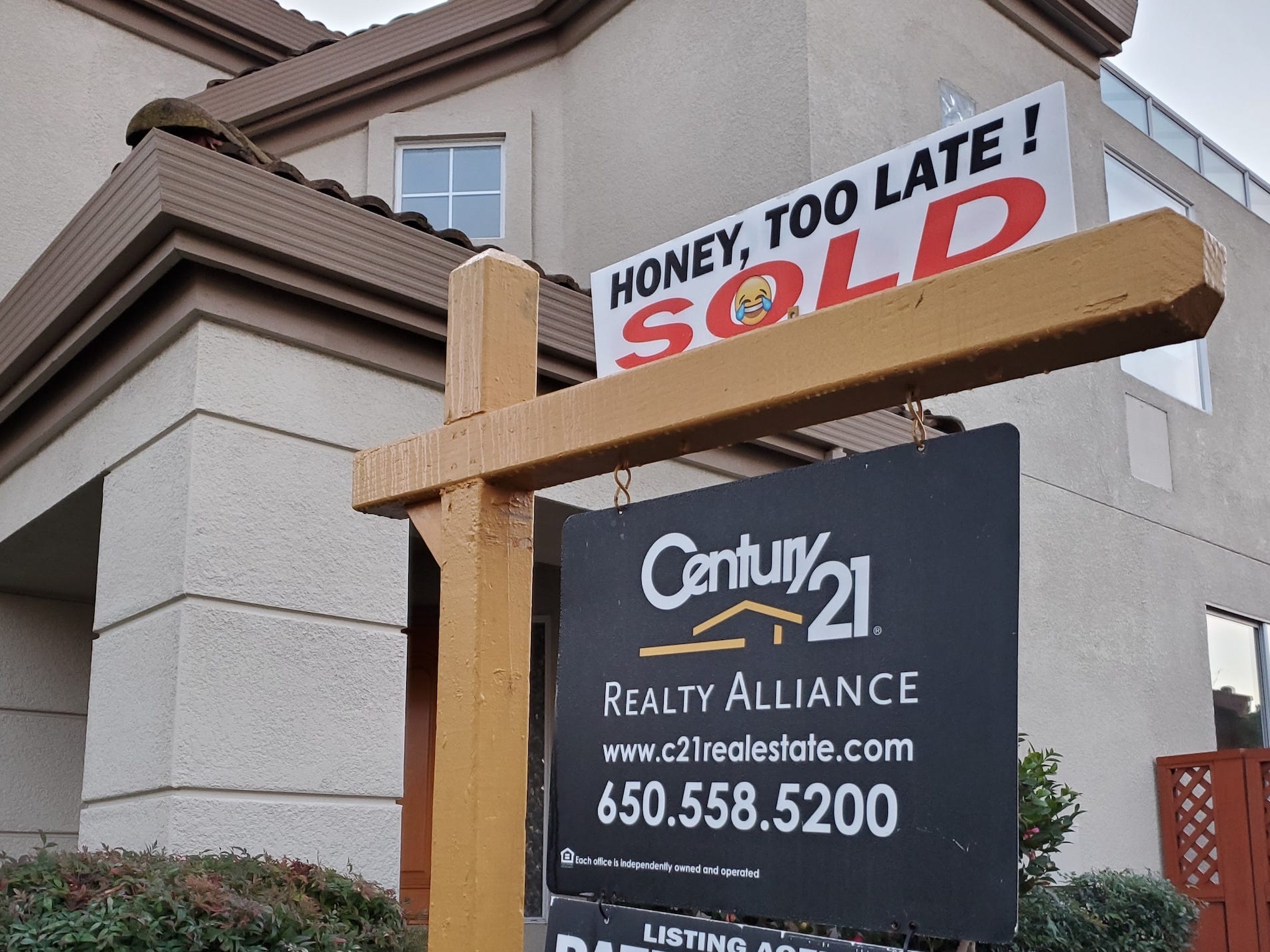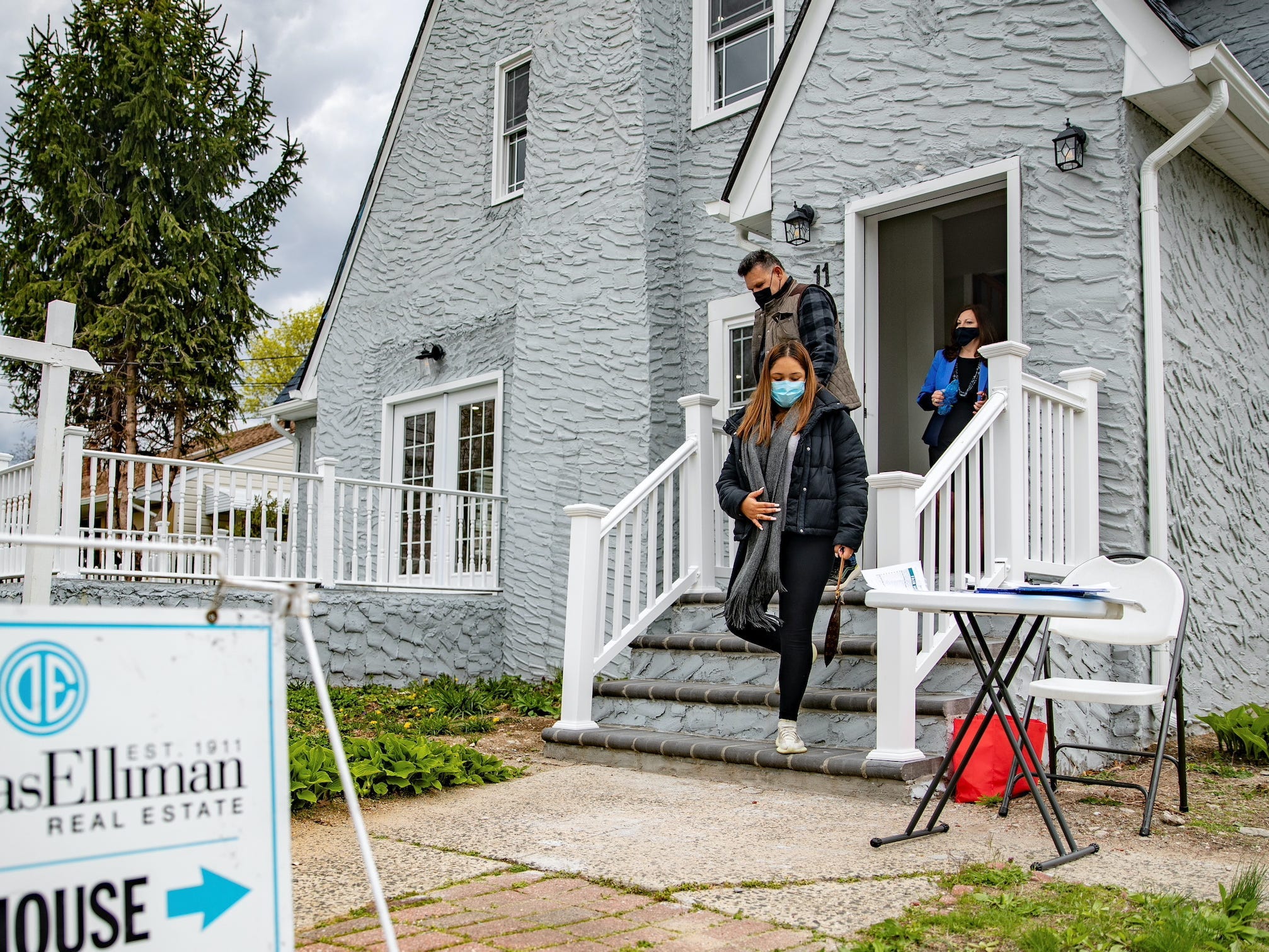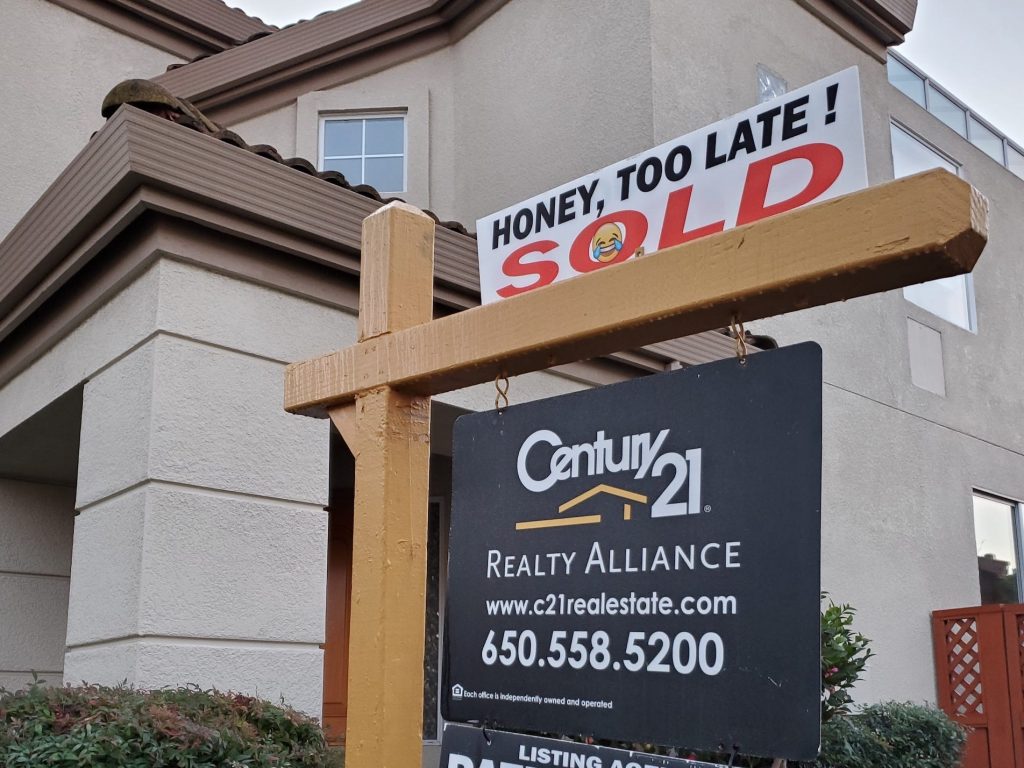
- Waiving appraisal contingencies has become a popular tactic for winning a bidding war.
- That means if an appraisal falls short, the buyer is on the hook for coming up with the extra cash.
- This is making it more challenging for first-time homebuyers to find a house, realtors say.
- See more stories on Insider's business page.
If you want to nab a home in today's wild real estate market, you better have tons of cash, realtors say.
Prices have risen, inventory is low, and competition for available homes is fierce. It's led to bidding wars, as well as prospective buyers making concessions to help their offers seem more appealing: Forgo the inspection? Sure. Offer to rent back the home to the current owners? OK. Waive the appraisal contingency? Done.
The latter decision is one that's creating an ideal situation for buyers with lots of cash on hand, while first-time homeowners or lower-income buyers are getting boxed out of the market, realtors from across the country told Insider.
"I had an agent, we submitted an offer on a property, she emailed me back a detailed list of all the offers she received and it was 36 offers," Nadine Pierre, a realtor with Allison James Estates & Homes in South Florida, told Insider. "I couldn't do anything but take a screenshot of the email and send it to my buyer for her to see it herself."
Pierre said that 12 of the offers were over list price, 13 were $15,000 over list price, six waived the inspection period, four offered to rent back the home, and 11 added an over-appraisal contingency, meaning that even if the home appraised for the contract price, the buyer was still willing to give the seller extra cash.
"Cash is king," Pierre said.
'It's a great unknown and we have no control over it'

Bill O'Leary/The Washington Post via Getty Images
Prior to the pandemic, before the real estate market became a frenzied land-grab, home appraisals would proceed in their typical fashion: Say, for instance, a home is listed for $500,000 and the buyer is able to get it under contract for that amount. Their plan is to put a 20% down payment on the home - $100,000 - and borrow the additional $400,000 from the bank.
As part of the bank's due diligence, it sends out a third-party appraisal company to determine the value of the home - that valuation is based on factors like the local market and the comparable homes in the area, but it's typically nebulous and difficult to predict.
In this hypothetical, pre-COVID scenario, the appraisal would align with the sale price, or it would fall short by a relatively minor amount - say, $10,000. The buyer would then return to the seller and ask to renegotiate the price, or have the option of walking away from an overvalued home, thanks to the appraisal contingency in their contract.
But that's not what's happening anymore, Sean Waeiss, a broker and the owner of Wise Property Group in Austin, told Insider.
"What is commonplace now is for buyers to remove that contingency, meaning you can't renegotiate with the seller because you don't have a right to walk away anymore," he said. "The problem with this is, we're not missing appraisals by $10,000 - we're missing appraisals by $50,000, by $75,000, by $90,000."
And when an appraisal falls short of the sale price, the buyer is on the hook to come up with the extra money. That means buyers are having to bring a significant amount of cash to the table, both for a healthy down payment and in case they need to bridge the gap between the appraisal price and the contract price, Waeiss said.
"It's so high-risk for buyers because you expose yourself to an undetermined number," he said.
Mary Pope-Handy, an agent with Northern California firm Sereno and a blogger who writes about Silicon Valley real estate, said home prices have gone up dramatically in her region since January - by as much as 20% in some areas - and it's begun affecting appraisals.
Pope-Handy said she recently had a client buy a house in the San Jose area that appraised at $55,000 less than the contract price.
"It's a great unknown and we have no control over it," she said.
A challenge for first-time buyers

Raychel Brightman/Newsday RM via Getty Images
Waeiss said the Austin market has been impacted by the migration of tech workers outside of states like California and New York during the pandemic. Some of those buyers have sold off million-dollar homes in other states, setting them up to buy larger and more high-end homes in Austin.
But there's another subset of buyers who are affecting the local market, Waeiss said: Buyers who don't necessarily make "a crazy amount of money," but do have a significant chunk of equity in companies like Facebook, Apple, or Google. Those buyers are able to either liquidate shares or borrow against their stock in order to put hefty down payments on homes in the region.
That means it's become tougher than ever for a more typical first-time homebuyers to find a house.
"Somebody who's between the ages of 25 and 35, they're a first-time homebuyer, they've saved up a good chunk of cash for their down payment - maybe it's $50,000, maybe it's $100,000 - they can't buy in Austin right now," he said.
"They can't afford it because they're not cash-rich," he added. "They could probably afford the monthly payment. They have good income. They have a good nest egg. But it's not enough."
Dit artikel is oorspronkelijk verschenen op z24.nl

